Post-Doctoral Fellow
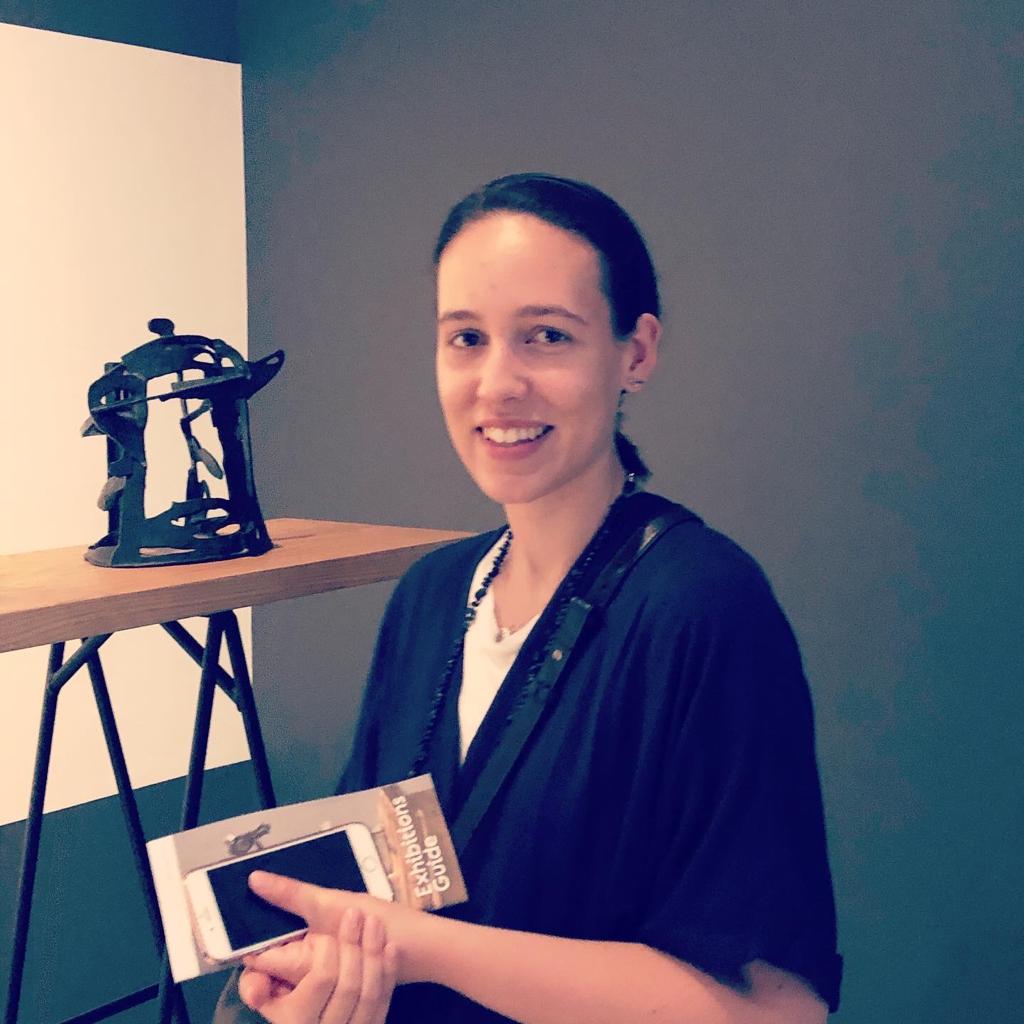
As a BA Honours student, I am passionate about History and great Design, hence in combining the two I have developed an interest in Curatorial Studies and the dynamics of the interactivity of the museum or gallery space and the public.
I have recently graduated with a BA majoring in Historical Studies and Italian Language & Literature, in addition I have a diverse background of Classical and Religious Studies as my minor subjects. As an aspiring Curator, I hope to one day curate and design experiences which will encourage the increased participation of the public audience within the museum or gallery space, perhaps even outside those spatial boundaries.
In terms of my interest in topics for research, I have a particular interest in the writings of Mahmood Mamdani on the dynamics of ‘indirect rule’ during the colonial period in Africa. I also enjoy looking at the dynamics of the Cold War period on a global scale, as well as the impact and legacy that this period had on our perceptions and experiences in the present day.
Most importantly, I enjoy making use of different art forms and artworks to aid in the analysis of the politics and experiences of the particular period or discourse in question.
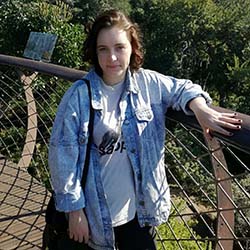
I am an Honours student who is particularly interested in historical work around disease, medicine, health, women’s bodies and queer bodies, in terms of both a global and local context. Fundamentally, I am interested in spotlighting and exploring the intersections between class, race and gender in particular with regards to health, medicine and disease. I am drawn to the field of the Medical Humanities, as the social, political and historical aspects of medicine, health, health systems and health care and the different variations of this are elements which the discipline of medicine overlook and ignore, and which are often not included in the focus and scope of the Humanities. I aim to draw on this interdisciplinary field and apply this approach to research to my own research. Furthermore, I am interested in and concerned with different forms of violence, with sexual violence, structural violence, state violence and genocides in particular, as well as trauma, being some of my main research interests.
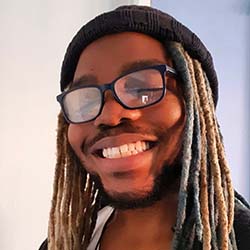
I recently completed my Bachelor of Art in History and Organisational Psychology but decided to take up my Honours in History as it is a strong interest of mine which helps me understand the subtle, and sometimes not so subtle, complexities in current affairs.
My interests lie in the discussion on what identity means to the African diaspora and the identity encouraged by the respective adoptive nation .How does the diaspora, whether in a Trans-Atlantic or within continent, view culture and what are the historical complexities involved in trying to maintain the "home" culture when an adoptive culture is imposed? And how does this interaction cope with the introduction of a "third culture" and what would that term mean to African diaspora? It is within these broad conceptual, yet still practically relevant, interests that I hope I can start to make a contribution through my Honours or even more in the future.
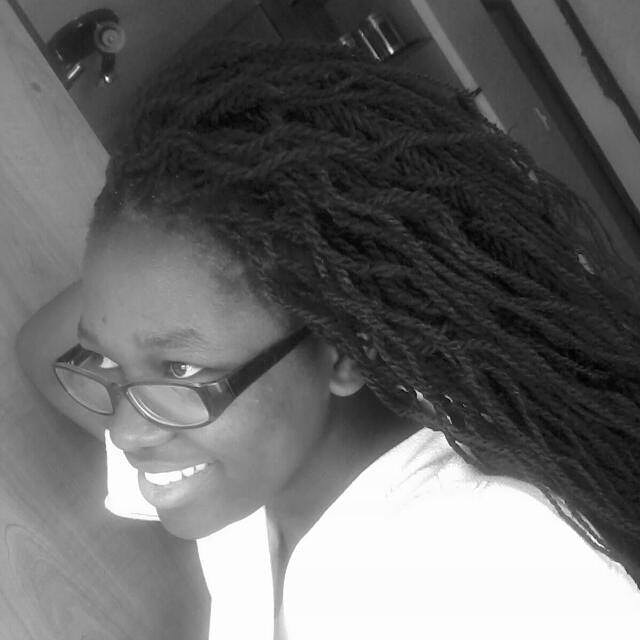
My research interest is in African genocides, especially that of the San. I would like to focus on the roles that women and children played during this atrocity. More often, than not women are mentioned as part of the masses without specific references to their actions or reactions. Looking at this genocide through a gendered lens might reveal new avenues of thought while simultaneously giving a stronger a voice to the subaltern. There will be the case of some of the information from primary sources being lost in translation but programmes such as these as well as the trust in the rigour possessed by previous scholars will ensure that this is kept to a bare minimum. I feel as though the why of the genocide has been explored (and trust there will always be someone wanting to delve into that case) but the how as well as the “who exactly did what” should be explored more especially since some languages do not prioritise gendered pronouns in much of their speech patterns.
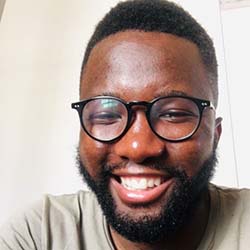
I am from Makhanda (former Grahamstown), in the Eastern Cape. I grew up under an encouraging mother who valued and believed in education. I am a cricket enthusiast who has a solid understanding of the game.
I have been an activist as a student at the University of the Western Cape where I completed my undergraduate studies- majoring in History and Sociolinguistics.
My research interests lie in South Africa’s rural history- a field less explored in South Africa’s historical studies. My Honours research focused on the precursors, continuities and legacies of the Homeland system in Peddie, and generally the former Ciskei. Covered in my work was issues of governance, citizenship, democracy and chieftaincy.
My Masters is primarily a thematically discussing on the genealogy (ies) of Indirect Rule. The study is tracing the evolvement of colonial techniques, methods and procedures in the segregation period leading up to apartheid (1927-1952) and how the politics within the Union government shaped state initiatives. In doing so, I wish to understand the evolvement of South Africa’s Native Policy beyond national policy and attempt to comprehend local initiatives from district and local council level which prompted policy change, sometimes unofficially. The southern Ciskei, for me, presents a different dynamic considering the surrounding Victorian towns. I remain curious of the encounter of Victorian culture and the African polity in this period.
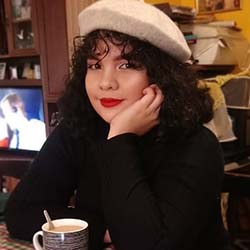
I obtained my Honours degree in History at the University of KwaZulu Natal, where I had previously pursued my undergraduate degree in History and Psychology.
During my time at UKZN, I was selected for a student exchange programme to the United States of America and attended Roosevelt University where I was introduced to gender studies and gender history. This exposure influenced my Honours thesis which examined the life of Beverley Ditsie, a South African black woman who was greatly influential in the LGBTQ liberation struggle in South Africa during the 1990s.
I am passionate about creating historical scholarship that is more inclusive of ordinary people who have been marginalized by society, particularly through using a gendered and social historical narrative as well as modern technology. I think that history should be more accessible to everyone and this can be done by utilizing technology such as open source forums and online archives to fill in the gaps that archives and other historical research sources inadvertently create.
Outside of academia, I enjoy travelling and learning about other cultures. Currently, I am interested in the Korean entertainment industry and culture and have begun learning Korean as well.
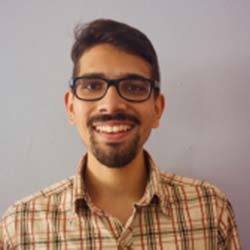
I am currently a Masters candidate in the Historical Studies Department. In 2019, I completed my Honours in Historical Studies at UCT and I hold a Bachelor of Arts in Historical Studies, Politics and Governance and French Language and Literature. I have had a deep interest in history, language, as well as current affairs and politics. My research interests lie in the intersection between language, history, and identity (-making). Language is an expression of life and is a space of coalescing identities, subjectivities and practices.
My Honours project explored intersections between language and race in the discursive philological discourse “the Kafir language”. Instead of utilizing modern categories, I traced how this category revealed shifting boundaries and assumptions of language from 19th century missionary philology to 20th century ‘linguistic science’ in Southern Africa. In my Masters project I intend to further study themes of language, race as well as institutionalization and territory in 20th century Southern Africa. I am excited to form part of the History Access 2020 Fellowship, and believe the program responds to a pressing need to reshape normative ideas around historical knowledge production and concepts in a Southern Africa context. I am excited to form part of a research community that centers alternative knowledge forms in a society shaped by colonial pasts, and seeking new modes of expression and critical solutions.
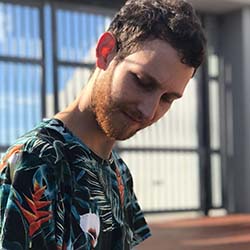
My research focus is in alternative South African historiograpies and isiZulu literature. I hope for my Masters research to study a ‘history of place’ of oThongathi/oHlawe, a town in KwaZulu-Natal, by using the methodologies created by Rolfes Robert Reginald Dhlomo, and therefore provide a practical example of how his methodologies might be used in South African historical research today. Outside of my studies I also run Kwasukela Books, a primarily isiZulu publishing company that launched in 2017 with a collection of speculative fiction titled ‘Izinkanyezi Ezintsha’.
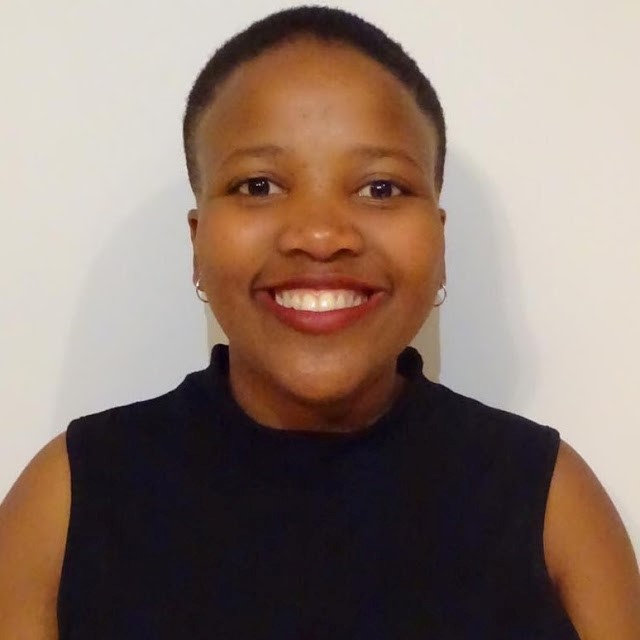
I completed my History Honours in 2018 and I will be pursuing a Masters in History (coursework) in 2019-2020.
My research interests lie in uncovering the dearth of black women’s writing and contribution to South Africa’s political history. The period I am interested in is the early twentieth century; in the 1920s South African women were beginning to gain a new visibility in the political arena, engaging activities that had political consequences and through their actions they were blurring the lines between public and private sphere.
My Honours thesis examined the political praxis of Nontsizi Mgqwetho. I closely looked at her poem “Imbongi ye Zibuko” (The poet of the ford) and argued that she was able to use poetry to mediate through a number of the layered contradictory realities of black life in the early twentieth century.
I also want to write more in isiXhosa, I believe that this will allow me to express myself in a compelling way and I have been able to speak to a wider audience. I want to develop as a scholar and to work on collaborative projects with other students and academics to reimagine epistemological possibilities for the future. I am also passionate about the media space, and I have been able to enhance my skills in radio working as a presenter, newsreader and producer.
I am excited to be a part of an intellectual project that is able to examine historical patterns, processes an interconnections in a creative way that is creative and allows for critical research.
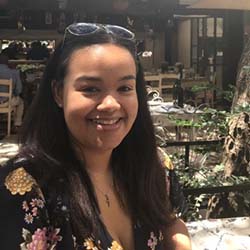
Chavonne Cupido is a second year PhD candidate in the History Access Scholarship Program at the University of Cape Town. She obtained her undergraduate degree in History and English at the University of Stellenbosch and received her Masters degree in History at the University of the Witwatersrand. Throughout her postgraduate studies she was fortunate to work as an archival intern at the South African History Archives which afforded her the opportunity to gain insight into the importance of archival sources. Chavonne then joined the Non-Racial Sports History Project as an interviewer. These interviews formed part of a larger mission for the Non-Racial Sports History Project to record the histories of forgotten voices which have been exhibited at the apartheid museum. She then worked as a part-time researcher for the National Heritage Monument’s Long March to Freedom project. These work experiences have increased her passion for the archives, historical monuments and oral history.
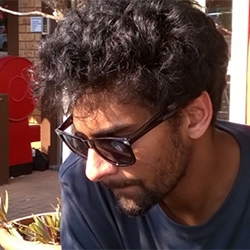
My university studies began at what is currently known as Rhodes University, where I completed a Bachelor of Arts in Politics and English Literature. I then went on to complete my Honours in Politics. Years later, after some disillusionment with the academy, I registered for a Post-Graduate Certificate in Education (PGCE) at the University of Cape Town, which led to an interest in teaching, particularly in History curriculum revision. I am a qualified high school History and English teacher.
From this, I was lucky enough to be absorbed into the Archive & Public Culture initiative (APC), where I had the opportunity to work between the UCT History Department and School of Education, reading for a Masters in Arts. My MA thesis focused on the public production of Mapungubwe as an historical event, and, more generally, the production of the problematic concept of the ‘precolonial’. The work spans between various disciplines, including archaeology, education and curriculum theory, the broad expanse of History as a discipline, and critical literary studies.
During this time, I have had the opportunity of contributing to various APC workshops, the Precolonial Catalytic Conference (held at Nelson Mandela University), and a focus group on ‘Public Discourses on the Past Before Colonial Times’ (coordinated by the Nelson Mandela Foundation and the Harvard University Centre for African Studies). I have written a chapter titled, ‘Allegorical Critiques and National Narratives – Mapungubwe in South African history education’, which was published in Whose History Counts (2018), edited by June Bam, Lungisile Ntsebeza and Allan Zinn. Another chapter, generally outlining the political history of Mapungubwe-related research, is in the works.
My PhD work keeps with my interdisciplinary interests, as well as the peculiar continuities and transformations between ‘precolonial’, colonial, and postcolonial periods. The work sets the histories of Nongqawuse and the Xhosa cattle-killing at its centre, looking at how the histories of the nineteenth and early twentieth century have endured and transformed with politics and time. At its core, the PhD is about the future-orientation of history, and how, always, there is a future imagined, and a future produced when history is written. The theory here works with the writings of thinkers like Karl Lowith, Kathleen Davis, Reinhardt Koselleck, Barbara Cassin, Emily Apter, and Walter Mignolo, as well as the work of Jeff Opland, Pamela Maseko, W.W. Gqoba, SEK Mqhayi, DLP Yali-Manisi, Walter Rubusana, AC Jordan, Jeff Peires, and Helen Bradford, among others. At the moment, my focus is on the endurance of the initial contribution Gqoba, in abridgements (by Rubusana), and translations (by Jordan, Opland and Bradford), and how meaning shifts and changes in these processes.
Currently, I am working on a prospective journal article which will deal with the concept of “prophecy” in the histories of Nongqawuse and the Xhosa cattle-killings, focusing on how the concept was initially imposed in Englished histories, and how it has, over time, come to shape the politics of this historic event.
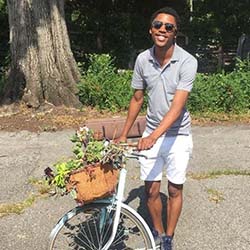
Sanele Ntshingana is a PhD candidate at the Historical Studies department and is part of the history access research group. His study investigates the meanings and praxis of governance and justice in the precolonial Cape-Nguni society through analysing selected literary works of some 19th and 20th century African intellectuals such as Tiyo Soga, Jonas Ntsiko, W.W Gqoba and SEK Mqhayi. This study is motivated by the current contestations in higher education that revolve around curricula, arguing that it presents western knowledge as universal while marginalising indigenous epistemologies in its teaching, learning and research practice. Sanele is also a founding member and activist in a story-telling and reading development initiative, Makhanda Black Kollective that is based in Makhanda, where he was born and raised. Makhanda Black Kollective is a Black Conscious and Pan-Africanist organization that grapples with the post- 1994 struggles that face young people in South Africa through conceptualizing and implementing educational programs that are aimed at creating new vistas of critical thought, restore collective memory, healing and rebooting of the soul and to inspire social action for environmental and social justice. Sanele holds a Master of Arts in African Languages from Rhodes University. He is a 2019 Mandela-Washington Fellow and completed his Leadership in Civic Engagement Course at the University of Georgia- Fanning Institute for Leadership.
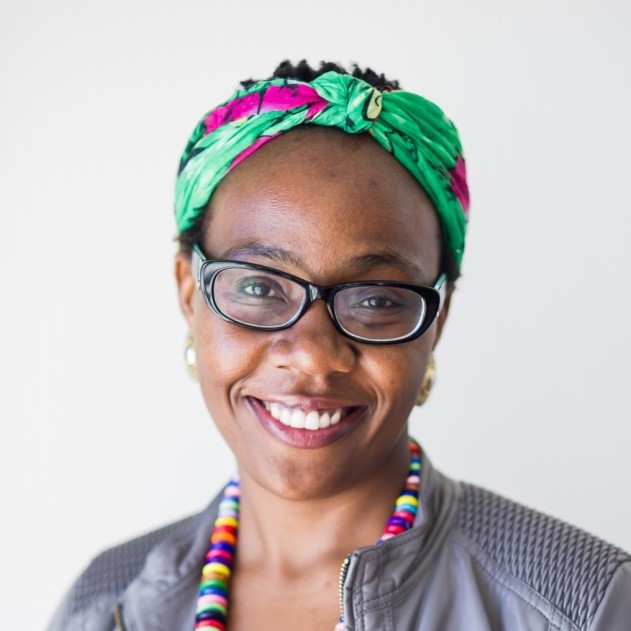
Nompilo Ndlovu is currently in the completion stages of her PhD which is an oral history study focused on Violence and Memory within in the Department of Historical Studies at the University of Cape Town – where she also adjunct lecturers HST3037 (History, Identity and Memory). Prior to this, she studied and worked within the disciplines of Gender and Development amongst communities within South Africa, as well as in the Horn of Africa through key institutions such as IGAD. Lastly, she is an alumnus of the African Leadership Centre/Kings College London where she completed the Peace and Security Fellowship for African Women, in the 2011/12 cohort.
Education
PhD topic Thesis: “The Gukurahundi ‘Genocide’: Memory and Justice in Independent Zimbabwe”.
Peace and Security Fellowship for African Women (Postgraduate Non-degree programme), Kings College London/African Leadership Centre, Nairobi, Kenya. (2011-2012).
Masters in Social Science (Social Development), University of Cape Town, South Africa (2007-2009). *(Dissertation Awarded Distinction, average mark of 75%).
Honours in Social Science (Social Development), University of Cape Town, South Africa (2006).
Bachelor of Social Science (Gender and Psychology), University of Cape Town, South Africa (2001-2004).